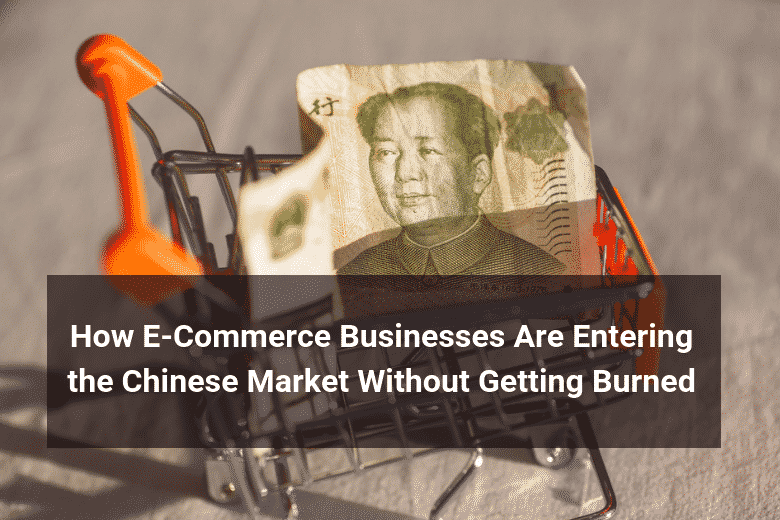China is a country which is in every investor’s mind these days. The country’s large population, growing economy, and the sizable middle class make it an incredibly alluring place for businesses across the globe. But despite the huge profits to be made, the country remains a dangerous market for foreign brick and mortar stores.
Walmart, Home Depot,Macy’s, and Mattel are just some of the famous brands that have struggled in this confusing market. However, this “China Syndrome” isn’t limited to big names alone. According to a report from the 2013 Australia China Business Week, more than 48% of foreign companies fail in China within two years of entering the market.
Reasons behind foreign companies failing include misunderstanding consumers, recreating their home management culture instead of pooling human resources from local partners, or even running afoul with the government. To sum it up, they failed to understand China and paid the price. So how can a foreign company succeed in the People’s Republic?
We searched everywhere, from personal accounts to market studies, to come up with an answer and the results surprised even us. Despite facing their own challenges, e-commerce businesses have proven consistently more successful than legacy stores for a number of reasons. Keep reading to find the secret behind e-tailing’s success in China’s lucrative retail market.
Centralized marketplaces reduce the costs of operating a retail business in China
Logistics are a serious problem in China; one which remains unsolved despite massive government investment in infrastructure. For brick and mortar stores, distribution represents a major challenge as poor roads, insufficient integration of regional transport networks, high tolls, and regional differences combine to make transportation costs up to 50% higher than those of a developed country. Simply put, the high-quality transport infrastructure seen in the main economic areas is the exception rather than the rule.
In this aspect, e-commerce businesses have proved particularly adaptable as they can rely on excellent marketplaces to distribute their products anytime, anywhere. E-commerce giants like Tmall, JD, and TaoBao are not only visited by hundreds of millions of users every day, but also have nation-wide logistic networks that can help foreign businesses to tackle regional infrastructure of market differences.
Chinese middle-class consumers are big into convenience and interesting online experiences
To the average Chinese consumer, foreign products represent both quality and coveted symbols of high-status. Being able to buy them regardless of time or location is a significant factor that drives sales. For Chinese consumers, online marketplaces offer an alternative to the long queues and crowded commercial districts where most brick and mortar stores operate. Thanks to the e-market’s high level of integration, customers can buy their products without needing to use multiple accounts and have them delivered to their houses in just a few hours.
But convenience isn’t the whole puzzle. For Chinese people, buying online is just as much about having social and personal experience as it is about purchasing a product they need. Local marketplaces differ from foreign companies, like Amazon, in that they offer a more attractive experience where shopping, social media, gaming, marketing, and even celebrity news morph in one place.
Online businesses faceless government intervention
For companies used to the laissez-faire attitude of Western governments, doing business in China can represent a major cultural shock. Despite its economic liberalization, China remains a highly bureaucratic one-party state where the lines separating private and public enterprises are rarely clear. A large number of Chinese companies are government-owned or government-backed, which means foreign physical stores have to deal with powerful competition, increased bureaucracy, and difficulty in establishing joint ventures when doing business in China.
E-commerce stores can largely sit back and delegate government interaction to their local partners and the marketplace they’re using. By comparison, many foreign brick and mortar businesses struggle to find their place in this new market. Examples of these are too numerous to count but two notable ones include Walmart’s estrangement with the government following labor unrests and Google’s falling of favor after they moved their servers out of Mainland China and refused to follow the government’s censorship guidelines.
E-businesses can use personalized shopping experiences to bring more repeating customers
Many believe that the key to solving the Chinese customer puzzle lies in the palm of their hands. With more than 699 million Chinese people owning smartphones and using them on a regular basis, the Middle Kingdom’s e-commerce market provides endless opportunities to carry out detailed market research.
Popular marketplaces like Alibaba and JD haven’t missed this chance and use it to harvest all kinds of shopping habits and preferences from their customers. These analytics can then be processed and used by their online stores to optimize their product lines, presentation, and promotions in an effort to increase their sales.
Equally important, online stores can also use these metrics to provide a richer shopping experience unlike anything seen in legacy stores. No more boring shelves and price tags. Instead, e-stores can optimize their sites to maximize customer engagement, taking the leap from a purely transaction-based into the experience-based commerce of the future.
China is a vibrant, young market where some of the most advanced marketplace ideas are currently being implemented. Its high rate of innovation, social media integration and large numbers of transactions means that there simply is no comparison between east and west when it comes to marketplaces.
Foreign e-tailers enjoy the benefit of using a huge, integrated network of marketplaces which offer massive brand exposure opportunities and access to their ample logistical resources. The obvious result is that for most foreign companies, it’s much easier to let local companies like Tmall or Taobao carry their weight rather than venturing into the risky brick and mortar retail market and fail.
So, are you ready to enter the lucrative Chinese e-commerce market?
With our fulfillment portal now supporting major Chinese ecommerce ecosystems with affiliations to enable low touch and quick executions to help foreign brands test and scale into the Chinese market, now is a great time to talk to a Floship consultant on how we can help your DTC brand gain the first foothold into China.

Ready To Upgrade Your Logistic Solution?
Speak to Floship ecommerce logistic consultant about improving your global support chain today





